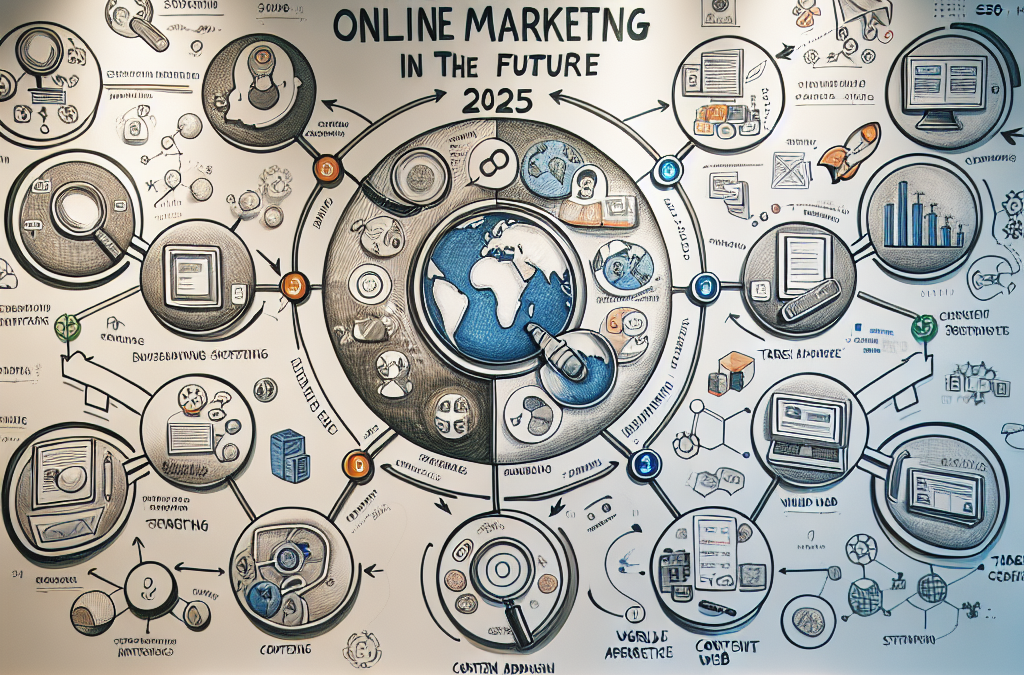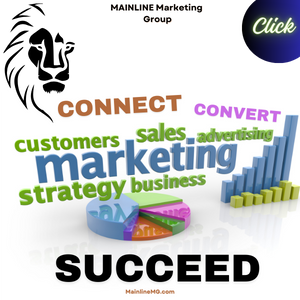Table of Contents
- 1. Embracing AI-powered SEO and Marketing Tools
- 2. Leveraging Data Analytics for Seamless Integration
- 3. Developing an Omnichannel Marketing Strategy
- 4. Personalization through AI and CRM Tools
- 5. Optimizing Content for Voice Search and Featured Snippets
- 6. Integrating Video Marketing with SEO Efforts
- 7. Automating Your Marketing and SEO Workflows
1. Embracing AI-powered SEO and Marketing Tools
The Rise of AI in Digital Strategies
In 2025, artificial intelligence (AI) has become a cornerstone of effective seo and online marketing integration. Businesses are leveraging AI to analyze vast amounts of data quickly, identify trends, and personalize customer interactions. AI-powered tools like chatbots, predictive analytics, and content generators make it easier to align SEO strategies with marketing campaigns seamlessly.
For example, companies using AI-driven content creation tools such as Jasper AI or Copy.ai have improved their content output consistency, leading to higher engagement and better search rankings. AI also helps in keyword research by predicting future trends, giving early adopters a competitive edge.
In practice, integrating AI with your existing platforms can streamline processes and offer personalized user experiences at scale. This synergy enhances both your SEO efforts and your overall online presence.
Practical Tips for Implementing AI Tools
Start small by testing AI tools for specific tasks like keyword suggestions or content optimization. As you observe positive results, gradually expand their use across all digital channels. Be sure to continually monitor AI outputs for relevance and accuracyâhuman oversight remains essential.
Invest in training your marketing team to understand and utilize AI features effectively. Remember, AI is a tool to augment human creativity, not replace it. In 2025, combining human insight with AI efficiency is the key to successful seo and online marketing integration.
Case Study: AI Success Story
A mid-sized e-commerce brand launched an AI-powered marketing platform in 2024. Within six months, they reported a 25% increase in organic traffic and a 15% boost in conversion rates. Their success underscores how AI can significantly improve seo and online marketing integration when implemented thoughtfully.
2. Leveraging Data Analytics for Seamless Integration
The Power of Data in 2025
Data analytics has become more sophisticated and accessible, enabling marketers to measure and optimize their seo and online marketing strategies effectively. In 2025, integrating data insights across departments ensures a unified approach to digital growth.
These analytics provide detailed user journey maps, conversion funnels, and real-time performance metrics. Knowing how your audience interacts with your content allows you to tailor your SEO tactics and marketing messages accurately, leading to higher ROI.
For instance, tools like Google Analytics 4 and Adobe Analytics now offer predictive insights that help anticipate user behaviorâmaking your marketing efforts more proactive than reactive.
Best Practices for Data Integration
Set up a centralized data repository, such as a customer data platform (CDP), to unify data sources. This provides a holistic view of customer interactions across channelsâlike social media, email, and search.
Use these insights to personalize your marketing campaigns, optimize keywords based on real user intent, and refine content strategies accordingly. The key is to continuously monitor and adapt based on data trends and customer feedback.
Regularly auditing your data sources and ensuring data privacy compliance is crucial to maintain trust and protect sensitive information in 2025.
Real-world Data Utilization
Leading brands like Amazon and Netflix excel at integrating data and marketing, creating hyper-personalized experiences that boost engagement and sales. Small and medium businesses can replicate this success by adopting smarter analytics tools and practices.
3. Developing an Omnichannel Marketing Strategy
The Omnichannel Approach Explained
In 2025, consumers expect a consistent and seamless experience across all digital touchpoints. Developing an omnichannel marketing strategy means integrating your website, social media, email, and offline channels for a unified brand message.
This approach ensures that your seo and online marketing integration extends beyond isolated platforms to create a holistic digital environment. It enables better customer engagement and increases the likelihood of conversions.
For example, aligning your content strategies across your blog, social media, and email campaigns ensures consistency and reinforces your message, aiding your seo efforts significantly.
Steps to Create an Effective Omnichannel Strategy
Start with a customer journey map to identify all touchpoints. Use customer data to personalize interactions at each stage, providing relevant content and offers.
Invest in marketing automation tools that synchronize campaigns across channels in real time. This not only saves time but improves the overall user experience.
Regularly analyze channel performance to fine-tune your approach. In 2025, continuous adaptation based on customer feedback and data is essential for success.
Real-World Example
Brands like Starbucks have successfully integrated their digital channels, enabling customers to order via app, website, or in-store seamlessly. Their strategies demonstrate how effective omnichannel marketing boosts customer loyalty and enhances seo efforts.
Frequently Asked Questions
- What is the importance of seo and online marketing integration in 2025?
- In 2025, integrating seo and online marketing ensures a cohesive digital presence, improves search rankings, enhances user experience, and maximizes ROI by aligning your efforts across all channels.
- How can I effectively implement AI tools in my marketing strategies?
- Begin by identifying specific tasks that AI can improve, such as content creation or data analysis. Test and gradually expand AI adoption, always monitoring results and maintaining human oversight to ensure relevance and quality.
- Why is data analytics crucial for online marketing in 2025?
- Data analytics provides actionable insights about customer behavior and campaign performance, allowing for more targeted, personalized, and effective seo and online marketing efforts.
- How does developing an omnichannel strategy benefit my business?
- An omnichannel strategy creates a seamless experience across all touchpoints, increases brand consistency, boosts customer satisfaction, and ultimately drives higher conversions and sales.
Conclusion
In 2025, mastering the art of seo and online marketing integration is essential for any business aiming to thrive in the competitive digital landscape. By embracing AI tools, leveraging data analytics, developing omnichannel strategies, and automating workflows, you can achieve a cohesive, efficient, and highly targeted online presence. Remember, a well-integrated approach not only boosts your search engine rankings but also enhances customer experience and brand loyalty. Equip yourself with these seven strategies to stay ahead in 2025 and beyond.


